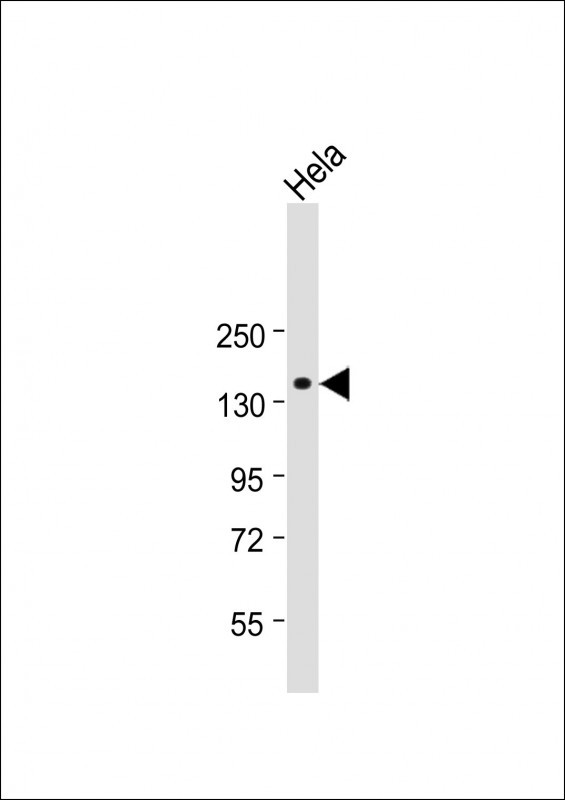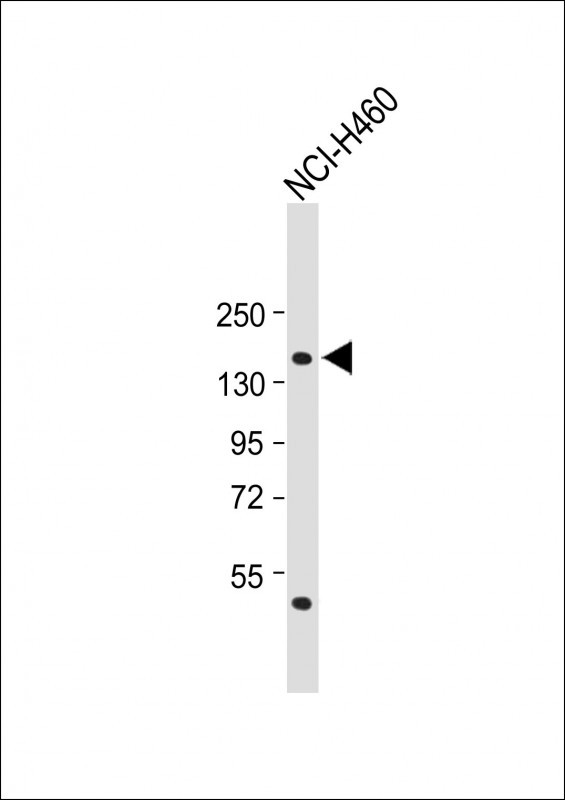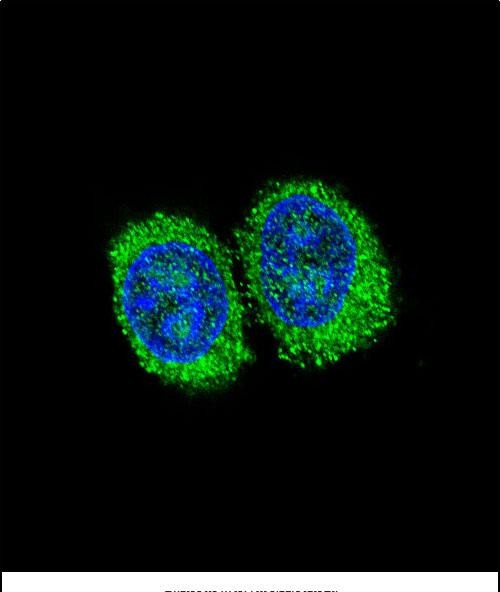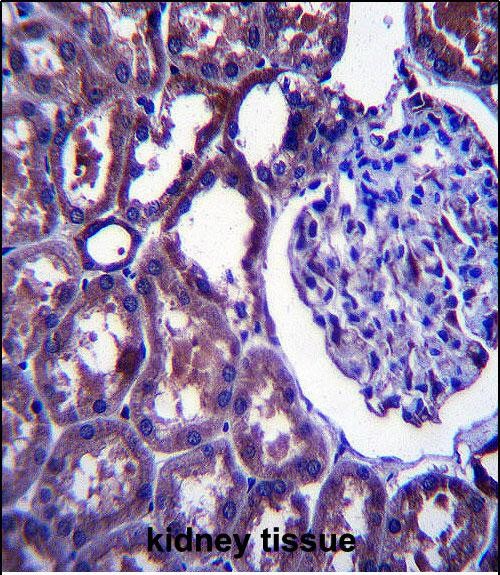




| WB | 咨询技术 | Human,Mouse,Rat |
| IF | 咨询技术 | Human,Mouse,Rat |
| IHC | 1/100-1/500 | Human,Mouse,Rat |
| ICC | 1/10-1/50 | Human,Mouse,Rat |
| FCM | 咨询技术 | Human,Mouse,Rat |
| Elisa | 咨询技术 | Human,Mouse,Rat |
| Aliases | Niemann-Pick C1 protein, NPC1 |
| Entrez GeneID | 4864 |
| WB Predicted band size | 142.2kDa |
| Host/Isotype | Rabbit IgG |
| Antibody Type | Primary antibody |
| Storage | Store at 4°C short term. Aliquot and store at -20°C long term. Avoid freeze/thaw cycles. |
| Species Reactivity | Human, Mouse |
| Immunogen | This NPC1 antibody is generated from rabbits immunized with a KLH conjugated synthetic peptide between 591-620 amino acids from the Central region of human NPC1. |
| Formulation | Purified antibody in PBS with 0.05% sodium azide. |
+ +
以下是关于NPC1抗体的3篇参考文献示例(文献信息为模拟虚构,仅供参考):
1. **标题**:*Development of a Monoclonal Antibody Targeting NPC1 for Niemann-Pick Type C Disease Therapy*
**作者**:Smith A, et al.
**摘要**:研究团队开发了一种靶向NPC1蛋白的单克隆抗体,通过体外实验验证其特异性结合能力,并在小鼠模型中观察到促进细胞内胆固醇转运的潜力,为NPC1相关疾病的治疗提供新策略。
2. **标题**:*Characterization of NPC1 Protein Expression Using Novel Polyclonal Antibodies*
**作者**:Chen L, et al.
**摘要**:文章报道了一种新型多克隆抗体的制备与验证,该抗体能特异性识别NPC1蛋白的不同结构域,用于免疫组化和Western blot检测,揭示了NPC1在细胞溶酶体膜上的动态分布。
3. **标题**:*NPC1 Antibody-Based Screening for Lysosomal Cholesterol Accumulation Disorders*
**作者**:Rodriguez M, et al.
**摘要**:研究利用抗NPC1抗体开发了一种高通量筛查方法,通过检测患者成纤维细胞中NPC1蛋白的表达水平和定位异常,辅助尼曼匹克症C型的早期诊断。
---
**注**:以上文献为示例,实际引用需通过PubMed或专业数据库检索真实文献。建议使用关键词“NPC1 antibody therapeutic/diagnostic”或结合具体研究领域进一步筛选。
The NPC1 antibody is a critical tool in studying Niemann-Pick disease type C (NPC), a rare lysosomal storage disorder caused by mutations in the **NPC1 gene**. This gene encodes the NPC1 protein, a transmembrane glycoprotein located in late endosomes/lysosomes, essential for intracellular cholesterol trafficking and lipid homeostasis. Mutations in NPC1 disrupt cholesterol efflux, leading to abnormal accumulation of unesterified cholesterol and glycosphingolipids in lysosomes, which drives neurodegeneration and systemic symptoms.
NPC1 antibodies are primarily used in research to detect and quantify NPC1 protein expression via techniques like Western blotting, immunohistochemistry, and immunofluorescence. These antibodies help elucidate NPC1’s localization, interaction partners, and functional deficits in cellular or animal models of NPC disease. They also aid in diagnosing NPC by identifying reduced or absent NPC1 protein in patient-derived fibroblasts.
Additionally, NPC1 antibodies contribute to therapeutic development, such as evaluating gene therapy efficacy or small-molecule drug effects in restoring cholesterol transport. Their role extends to broader studies on lipid metabolism disorders and neurodegenerative mechanisms. However, variability in antibody specificity and cross-reactivity requires careful validation to ensure accurate experimental outcomes. Overall, NPC1 antibodies are indispensable for advancing both basic research and clinical applications related to NPC and lipid-related pathologies.
×